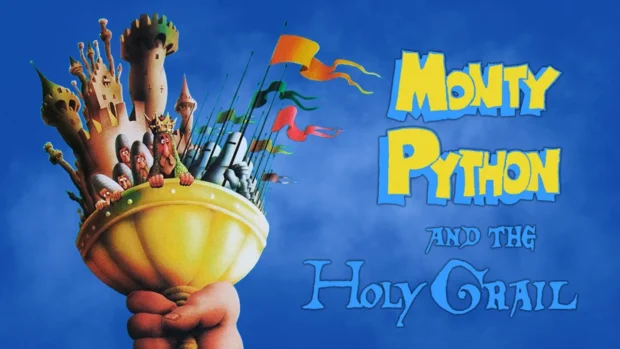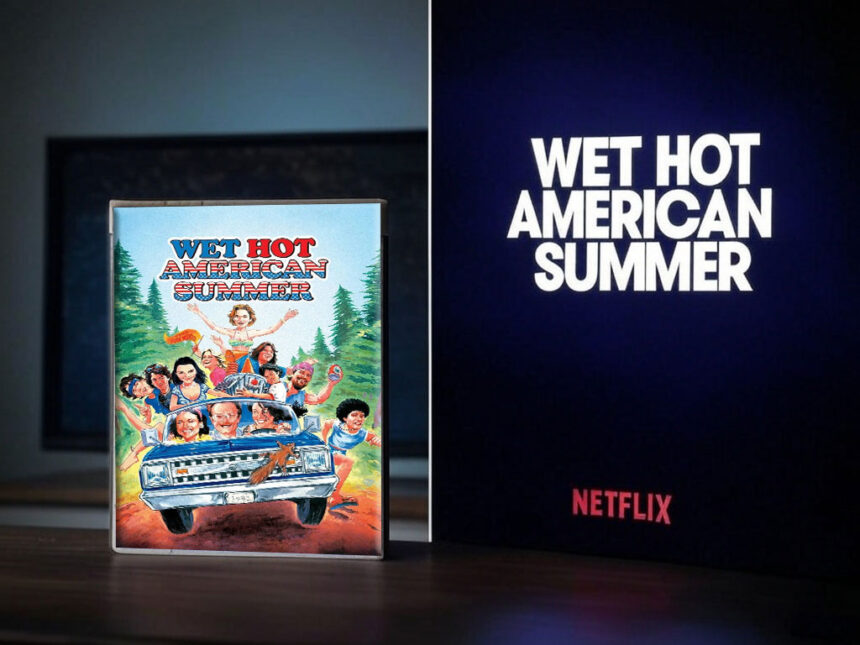Imagine this: You're half-asleep, scrolling through Netflix, and stumble upon Hot Rod. You vaguely remember it bombed. But tonight? It's pure gold. You laugh, you rewatch, you quote it endlessly. Welcome to the accidental renaissance of cult comedy films—powered entirely by streaming.
Streaming didn't just save cult comedies. It quietly resurrected them.
I wept when ‘Popstar' flopped. Then Netflix happened.
Back in 2016, Popstar: Never Stop Never Stopping tanked at the box office—badly. Despite strong reviews, it barely covered half its production budget. But give it a few years, toss it on Peacock, and suddenly, Popstar is gospel among comedy nerds. The “Bin Laden” track is a TikTok audio. The fake TMZ sketch is meme canon.
This isn't a one-off. It's a pattern.
The Data Doesn't Lie: Cult Comedies Are Booming—Just Not in Theaters
Let's look at Wet Hot American Summer. In 2001, it earned less than $300,000. Fast forward to 2015—Netflix commissions a full-on reboot (Wet Hot American Summer: First Day of Camp) with the original cast. In what universe does a movie that flopped so hard it needed CPR suddenly become a streaming series? This one.
Here's the twist: Theaters were never designed for cult comedy. These films often have niche appeal, weird pacing, or joke-dense scripts that take a few rewatches to fully appreciate. Streaming? It's built for that.
No time limit. No $14 ticket. No judgment.
Cult Comedies and Streaming: Like Peanut Butter and Cynicism
These films are often like anti-blockbusters—quirky, self-aware, low-budget charmers that make you feel like you're in on an inside joke. Think MacGruber, The Nice Guys, Walk Hard. Too weird for mass appeal. Too brilliant to ignore.
Streaming is the first platform that lets them breathe. Suddenly, the quiet brilliance of a film like Barb and Star Go to Vista Del Mar finds its people. And not just at midnight screenings—on a Tuesday afternoon in Kansas.
They Called It a Failure—Then HBO Max Called
Let's take The Other Guys. Big studio release? Sure. But it didn't hit “cult” status until memes and rewatches gave it new life. That whisper scene between Mark Wahlberg and Will Ferrell? Immortal.
Now, streaming platforms are fighting over who gets to host it. HBO Max currently has the crown. And they flaunt it like a badge of offbeat honor.
Streaming gave these comedies what the box office couldn't: time.
Imagine if Monty Python Debuted on Hulu
Now here's a what-if for you: Imagine Monty Python and the Holy Grail premiered today. Niche British humor. Strange pacing. Absurdist characters. Would theaters carry it for more than a week? Probably not. But on streaming? It'd trend within hours.

Streaming algorithms don't care about ticket sales. They care about retention. Rewatch value. Cult comedies, with their quotability and shareability, check all those boxes.
You'll Either Love This or Hate It. Here's Why:
Streaming doesn't just save films. It weaponizes fandom. Suddenly, Death to Smoochy isn't just a punchline—it's a personality trait. Fans create communities, rewatches, Reddit threads, even drinking games.
These comedies no longer need box office success. They just need time. And a good thumbnail.
When Comedy Misses Theaters, It Hits Harder at Home
Let's be honest—comedy in theaters is a dying beast. The communal laugh is rare. Ticket prices are up. Risk-averse studios now only greenlight franchise fare. Cult comedies, with their unpredictable beats and off-kilter stars, don't stand a chance.
But streamers? They're like the drunk uncle who lets you stay up late. They take chances. Hulu bet on Palm Springs (Andy Samberg again!), and it became their most-watched film in 72 hours.
Here's the Uncomfortable Truth: Theaters Weren't Built for Weirdos
Streaming didn't just rescue cult comedies. It exposed how broken theatrical comedy releases were to begin with. The format—short runs, single-weekend pressure—doesn't serve films that require time to marinate. And cult comedies need to marinate.
Streaming gave them the long tail. That beautiful, weird, rewatchable tail.
Would You Risk Missing the Next ‘Hot Rod'? Comment Below.
So here's the takeaway: Cult comedies weren't “saved” by better marketing or sudden appreciation. They were quietly preserved by streaming services—like weird little fossils waiting to be rediscovered.
We didn't even realize it was happening. But now, MacGruber lives again. And somewhere, Walk Hard finally gets the respect it deserves.
You in?
FAQs
Why do cult comedies fail at the box office?
Because they're often too niche or unconventional. They don't conform to blockbuster formulas and rely on word-of-mouth, which doesn't work in a first-weekend-driven system.
How does streaming help cult comedies gain traction?
Streaming allows repeated viewings, social sharing, and algorithmic recommendations, all of which help these films slowly build a loyal fanbase.
Which streaming services are best for cult comedy films?
Netflix, Hulu, and Peacock have excellent libraries. HBO Max is also emerging as a go-to platform for offbeat classics.
What makes a movie a ‘cult comedy'?
These are often underperforming, offbeat comedies that grow in popularity over time due to dedicated fanbases, rewatch value, and quotability.
Has streaming influenced how cult comedies are made today?
Absolutely. Knowing that long-term viewership matters more than box office results has encouraged creators to take more risks.
Are there downsides to cult comedies being on streaming platforms?
The biggest challenge is visibility. Without heavy marketing, some films still get buried in endless content libraries.












